The 10 mistakes you make when washing dishes by hand
Agatha Christie used to say that her best novelistic crimes had occurred to her washing dishes because that task "turns anyone into a high-class homicidal maniac." Is it so horrible to face a pile full of soap and pots? There are studies that indicate that it is one of the most hated domestic jobs (because it does not generate compliments) and one of the least shared, having to be assumed by women.
But there are also the occasional successful male who likes washing dishes. Bill Gates said it was one of his hobbies and Jeff Bezos, Amazon mogul, told CBS that it was one of the sexiest activities he did. It allows you to leave everything sparkling clean while you relax and ramble happily with soapy hands.
We asked experts for the secrets of this daily task, to eliminate bacteria in an efficient and systematic way, without being overwhelmed by rubbing. At what temperature should the water be? Shall we start with the glasses or the pans? Shall we use a bucket to rinse? Is it a good idea to leave the sponge and use the dishwasher? Does the dishwasher consume more water than washing by hand? These are the 10 mistakes you make when washing pots and that, perhaps, are the ones that make you feel like Agatha Christie at the sink.
1. Use cold water
That the water with which you wash the dishes is very hot is for the professor at the ESHOB Barcelona Higher School of Hospitality, Cristina Cusí, the most important thing to achieve a complete bacteriological disinfection of the dishes. Cold water does not remove dirt to the same level. According to the expert in the Food & Beverage area, a temperature of around 80 degrees is ideal for completely eliminating bacteria from food residues. "It's what our grandmothers and great-grandmothers used to do, and they always used to be right," she points out and affirms that the dishwasher is ideal in this regard because it uses very hot water and prevents us from burning our hands when we do it in the sink. If we have to wash them by hand with hot water, we must wear gloves.
That the water with which you wash the dishes is very hot is the most important thing to achieve a complete bacteriological disinfection of the dishes
2. Being reluctant to use the dishwasher
Thinking that buying a dishwasher is a useless expense is a mistaken idea, according to Cristina Cusí. As we have seen in the first point, the appliance is very effective in eliminating bacteria, but not only that. Surprisingly, the expert argues that it is also more environmentally friendly and cheaper than scrubbing by hand. “The water consumption of a dishwasher is controlled, it is always the same. On the other hand, when we wash by hand we open the tap and the stream of water flows constantly, so we spend much more water almost realizing it, ”she explains.
If we believe that it is too expensive for our budget, "we have to think that in the market we can find them of all types and sizes", and also that they have eco washing programs. Now, if we have very few and barely stained dishes, “logic indicates that it will be better to wash them by hand”. And yes, turn off the tap when you're rubbing.
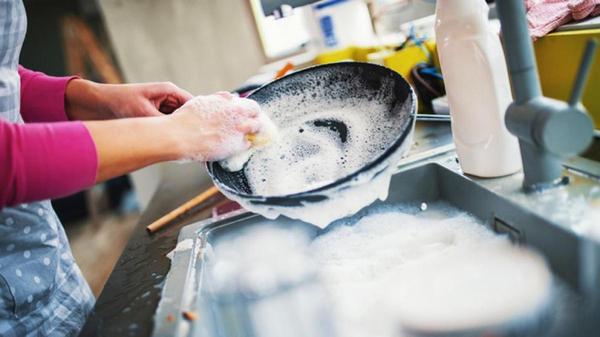
3. Mix types of dirt in the sink
The Argentine media chef Paco Almeida (with more than 70,000 followers on Instagram) launched a tweet thread in April 2018 with his dishwashing technique that immediately went viral. In the first point of the list appeared the importance of "knowing how to differentiate types of dirt on the dishes (grease, organic residues and surface dirt) and not mixing them". If you throw a tray in the sink where you have cooked meat in the oven with the cutlery and glasses, everything will be greased. He says that, as in the recycling of garbage, "you have to separate at source."
Cristina Cusí agrees and points out the importance of washing small and less dirty objects first and gradually ascending from smaller to larger "because you don't change the cloth or the sink." The most delicate goes ahead. "It is advisable to start with the glasses, wash them with hot water, let them dry and then clean them with a special glass cloth." And wooden objects, better not put them in the dishwasher.
The water consumption of a dishwasher is controlled, it is always the same. On the other hand, when we wash by hand we open the tap and the stream of water flows constantly
4. Do not remove the fat from the dishes before washing them
After 15 years working in kitchens around the world, Paco Almeida observed that dishwashing "is a global problem where a lot of water is wasted and liters of pollutants are dumped unnecessarily into the sewer." The first step to prevent grease from getting through the pipes is to remove food debris from trays, dishes and kitchen utensils before scrubbing. The chef recommends absorbing it with paper napkins (better if they are used so as not to waste) or with newspaper or any other paper. In this way we also facilitate washing, avoid contaminating the rest of the dishes and use less detergent.
5.Prewash before putting in the dishwasher
The advice of the previous point is equally valid in the case of the dishwasher. "Removing food remains makes the work of the appliance easier," Cusí points out, but she warns us that we should not do it with water. "Running the dishes through the jet before putting them in the dishwasher makes us spend twice as much water." The teacher has a method to remove difficult fat in all cases: use pastry tongues. "They are rubber spatulas that drag the dirt away immediately." It is also preferable to always wash immediately, because the grease and dirt harden. If this is not possible, soak the dishes with a splash of detergent.
6. Not controlling the type and amount of detergent we use.
If wasting water is harmful to the environment, so is abusing detergent. Chef Almeida assures in his method that, for dishes that are not particularly dirty, diluting a bottle of detergent in three bottles of water is just as efficient and protects your hands in case, like him, you do not like wearing gloves. In any case, it is advisable to follow the manufacturer's recommendation that is printed on the bottle.
Cristina Cusí warns us about the use of bleach, a pure disinfectant that does not need to be used in our day to day life, "much less mix with soap or use with hot water because its effect is nullified." For the teacher, the use of a few drops of bleach in cold water (one drop per liter) is recommended in cases where we have many guests and that generates large piles of washing utensils that make optimal disinfection necessary, although very hot water with detergent is just as effective. "In everyday life, bleach is not necessary," he points out. You also have to put the dishwasher tablets in the correct pack.
For dishes that are not particularly dirty, diluting one bottle of detergent in three bottles of water is just as efficient and protects your hands.
7. Not renewing the sponges with which we wash
What type of material is the best for scrubbing? Depends on the utensil you're up against. In principle, the brushes are used to remove food remains, the sponge removes basic dirt and the strongest scouring pads are useful with highly oiled appliances or with burnt remains. It is important to renew the scourer or sponge often because they accumulate many bacteria. The folds of sponges are a good haven for germs.
For Cristina Cusí it is important to use logic: "Having the metallic sponge that you use for very dirty pots and the fine cloth that is great for a pan with which you make tortillas." The expert adds that we should not leave the cloths soaking for a long time, but rather, once clean, they should be drained and dried to obtain better disinfection.
8. Should we use a bucket to rinse?
If we wash the dishes by hand, it is likely that, after soaping them, we rinse the dishes in a container full of water. In this way we use less water because we avoid having the tap open continuously but for Cusí, that is a mistake if we talk in terms of cleanliness, "because it is not very hygienic that all the crap is retained in a tank". You spend less water in exchange for worse disinfection. Everything will depend on the number of dishes and how dirty they are. Chef Almeida recommends grouping the different utensils by type before rinsing them.
9. Not taking care of the hygiene of the sink and the filling of the dishwasher
According to the British National Health Service, the kitchen sink contains 100,000 times more germs than the bathroom or toilet. For this reason, it is essential to keep it clean with a good degreaser and disinfect it daily. Likewise, we must keep the dishwasher in good condition. It is important to clean the filter with soap and water, and the rotating arms.
According to the British National Health Service, the kitchen sink contains 100,000 times more germs than the bathroom or toilet.
To optimize the use of water and energy, it is preferable to fill the appliance, but within the established limits, without any element interfering with cleaning. "The placement of the utensils must follow the manufacturer's instructions," says Cusí. In this way, the appliance is taken care of and it is also possible for the water to reach all the dishes and clean them correctly. We must make sure that no object covers another, preventing it from being washed.
10. Do not dry the tableware when storing it.
Once we have the dishes clean, we dry them in a dish drainer or with a delicate and absorbent fiber cloth that does not leave fluff. It is very important that when we store the dishes or other utensils “we do not have residual water because harmful bacteria . Accumulated water is always a danger,” says Cusí.


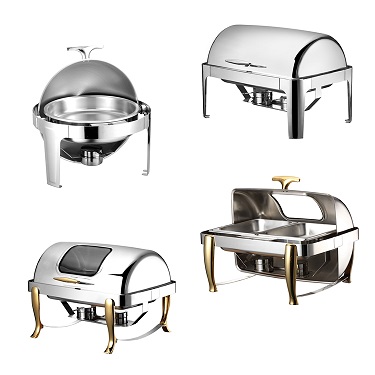
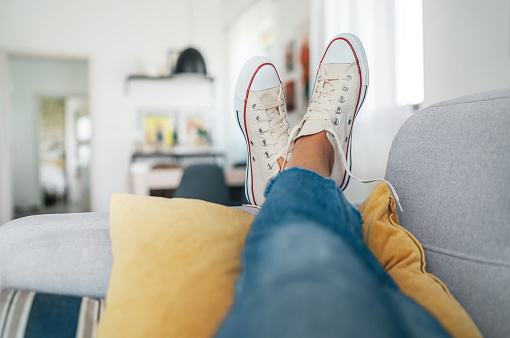
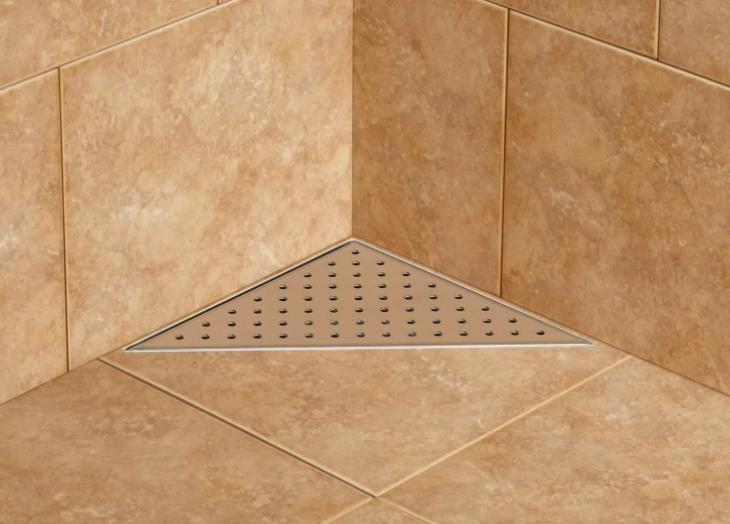

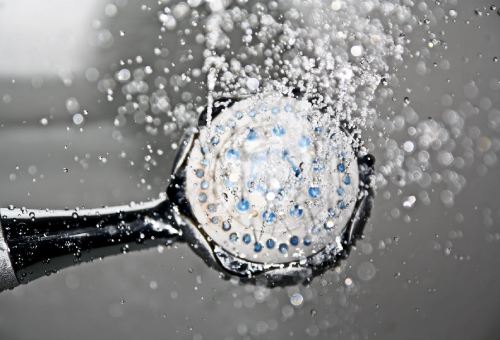
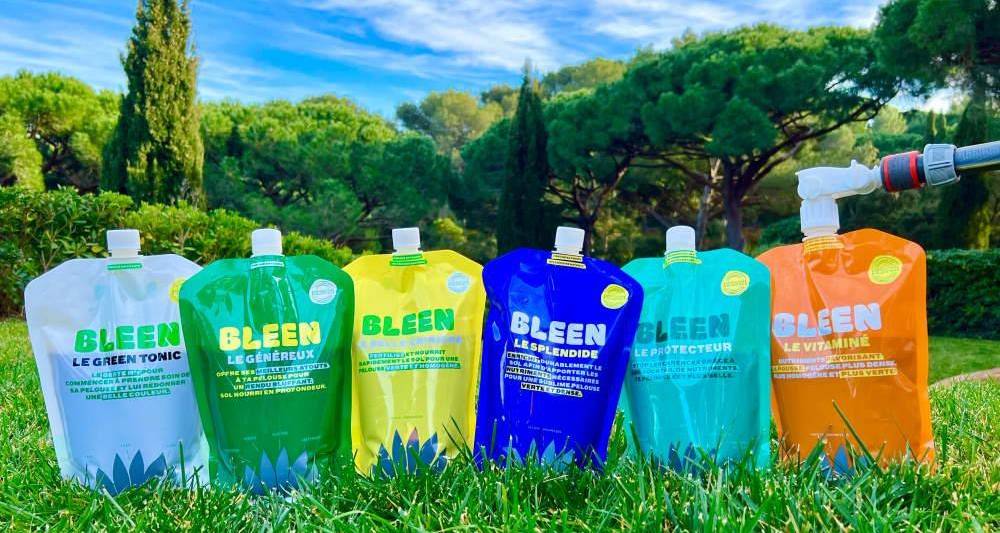

2130